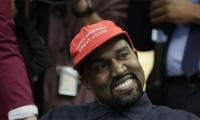ISLAMABAD: The Federal Board of Revenue (FBR) is contemplating upon different options for slapping Corona Tax on super rich and wealthy in the next budget for 2020-21, The News has learnt.
One top official of FBR on Wednesday confirmed to The News that like many other countries, wealth tax type was under consideration to bring rich and wealthy into tax net in order to combat coronavirus so this kind of proposal was also under consideration for the purpose of generating revenues and creating cushion for providing relief to the poor segment of the society.
“One such proposal under consideration is to impose Super Corona Tax on highly income bracket earners among all categories including salaried and non-salaried class,” official sources said while talking to The News here on Wednesday.
However, one top FBRofficial was of the view that the FBR would be vying to achieve the desired tax collection target of Rs5.1 trillion in next budget and it could be materialised without additional measures provided the fullfledge economic activities restored from the beginning of next fiscal year. If the effects of COVID-19 prolongs till the first quarter (July-Sept) period of 2020, the proposals like Corona Tax on the pattern of wealth tax would have to be considered to bring super rich and wealthy into tax net on temporary basis.
Former World Bank official and renowned economist Abid Hassan in his recent article published in this esteemed newspaper suggested that the government should consider a one-time wealth tax on the following two classes of assets: (i) wealth tax on real estate – homes and commercial real estate above a value of, say, Rs20 million. There are close to one million expensive homes/plots in cities. The value of these homes/plots, and commercial buildings, would easily run into several trillion rupees; (ii) wealth tax on owners of three million cars registered in Pakistan – especially cars above 1000cc.
There could be a small wealth tax on cars between 1000 and 1500cc, and hefty tax on luxury cars and SUVs which are less than five years old. The aim should be to raise, from these two sources, at least Rs100-150 billion, passing the entire tax to the provinces (as tax on property and vehicles is in their domain) for them to fund their crisis response programmes.
Second, taxing the 30-40,000 holders of listed shares, Pakistan’s super wealthy who have benefitted for over two decades from the tax haven called the PSX.
The current wealth of their holdings (i.e. market capitalisation) is around Rs7 trillion, on which they have hardly paid any tax. The government should consider a one-time 10 percent wealth tax.
These people will, most likely, have to sell their share holdings, which will further depress the market. But so be it. Besides, it will have absolutely no adverse impact on the economy or the 200 million citizens who are not invested in the market. Pakistan should raise at least Rs500-600 billion from these super wealthy.
Former FBR’s Member and tax expert Shahid Hussain Asad when contacted said on Wednesday that Pakistan badly needs foreign exchange. It’s difficult to enhance exports but government should use NAVTEC/TEVTA type of organisations, give a training of 3 months to 6 months to youngsters and give a task to all commercial/trade attaches all over the world to get these skilled/semi-skilled labour adjusted in other countries.
This can substantially increase our foreign remittances in a short period. Government can pay one rupee extra as compared to bank rate for some period on their foreign remittances, so that they send their earnings through normal banking channel.
Secondly, existing 17 percent rate of GST is too much. If the government announces that from next year the rate would be 15 percent, business community will be more than happy.
Thirdly, application of Input/output of sales tax is easy for multinationals companies or organised sector but not for common traders. They pocket its major share themselves. Rate should be reduced to 5 percent for them with no adjustments/no refund. The government even otherwise gets net 5 percent from this tax with lot of problems of illegal input adjustment and corruption issues. In this way a lot of corruption will be eliminated, he added.
Fourthly, the rate of minimum tax on turnover at 1.5 percent is too high and should be reduced to 0.5 percent. There is a lot of duplication in WHT. Finally, he said the number of withholding tax should be reduced substantially.
Gilani gave floor to Leader of Opposition Syed Shibli Faraz, who insisted that with unity they could take country...
Match witnessed intense action and dramatic twists, keeping fans on the edge of their seats until the final ball
Apex court bench was reconstituted after Justice Yahya Afridi recused himself from hearing the case earlier this month
ECP issued a notification in this connection pursuant to orders passed by LHC
Party leaders claimed that it was a story of resilience as the fabulous 28 years of PTI’s struggle changed Pakistan...
Establishment Division has issued notification of postings and transfers







